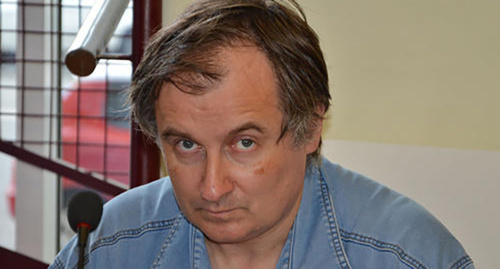
08 June 2016, 10:50
Instability in Northern Caucasus caused by rejection of "soft power", human rights defenders assert
In Northern Caucasus, the authorities have almost completely returned to the methods of "state terror" and rejection of the methods of "soft power", which were used in 2009-2012. This opinion was voiced during the presentation by the authors of the report released by the Human Rights Centre (HRC) "Memorial" on the state methods of combating terrorism in Northern Caucasus in the period starting from 2014.
The "Caucasian Knot" has reported that the report was presented in Moscow on June 7.
During the presentation, Alexander Cherkasov, Chairman of the Board of the HRC "Memorial", has noted that in 2009-2012, in Ingushetia and then in Dagestan, the authorities started to use as an alternative method of combating the armed underground the so-called "new course," which meant a dialogue with the different sectors of society.
"Today, Ingushetia is the only North-Caucasian republic, which still applies the elements of the 'new course.' Till present, the activities of the Ingush armed underground decreased by almost 120 times, and Ingushetia is now the most peaceful republic in Northern Caucasus," said Alexander Cherkasov.
Meanwhile, according to the human rights defender, in Dagestan, the use of methods of "hard power" results in creation of a base of dissidents, which can be used by new organizers of militant groupings.
Oleg Orlov, the manager of the programme "Flash Points" of the HRC "Memorial", has described in details the facts of human rights violations in Dagestan. He has mentioned as examples the cases of detention of religious leaders, the counterterrorist operation (CTO) in the village of Vremenny in the Untsukul District, as well as the police practice for preventive registration of members of the Salafi community.
According to Oleg Orlov, the initiators of "the hard power policy sincerely believe that the pressure on the Salafi community in the forms of closure of the mosques or attempts of its closure, fabrication of criminal cases, mass unlawful detentions, and kidnappings, will contribute to enhancing the stability in the republic; however, they are wrong."
"The policy of total suppression of religious dissent, the authorities' retraction of the course of 'soft power', and the stake on the methods of state terror in combating the armed underground create a significant group of people dissatisfied and offended by the power," concludes the human rights defender.
Full text of the article is available on the Russian page of 24/7 Internet agency ‘Caucasian Knot’.
Author: Karina Gadzhieva Source: CK correspondent




